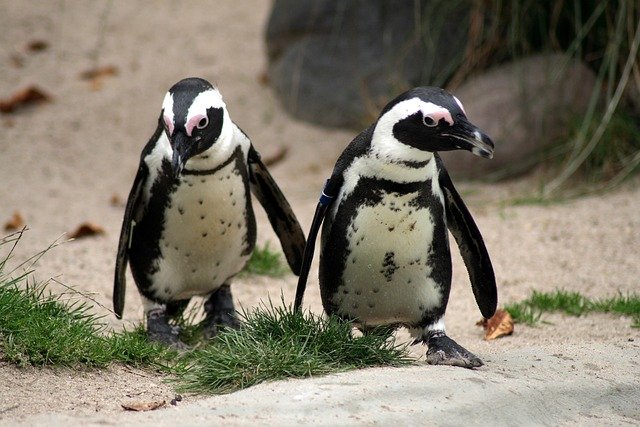"The Fascinating Lives of Penguins: Insights from Animal Research"

The Fascinating Lives of Penguins: Insights from Animal Research
Image Source: Unsplash
Penguins, with their distinctive waddle and tuxedo-like appearance, have captivated the hearts of people around the world. These incredible creatures, found primarily in the Southern Hemisphere, have adapted to survive in some of the harshest environments on Earth. Thanks to animal research, we have gained valuable insights into the fascinating lives of penguins and their remarkable adaptations.
1. Antarctic Adaptations
Penguins are the ultimate cold-weather specialists. Their unique adaptations allow them to thrive in extreme conditions, such as those found in Antarctica. Researchers have discovered that penguins have a thick layer of blubber, which acts as insulation, keeping them warm in freezing temperatures. Additionally, their tightly packed feathers provide excellent waterproofing, allowing them to swim effortlessly in icy waters.
2. Social Structures
Penguins are highly social animals, living in large colonies that can consist of thousands of individuals. Animal research has revealed that these colonies have a complex social structure, with specific roles and responsibilities. Studies have shown that penguins engage in various forms of communication, including vocalizations and body postures, to establish and maintain social bonds within their colonies.
3. Mating Rituals and Parental Care
Penguins are known for their elaborate courtship rituals and dedicated parental care. Animal research has shed light on the fascinating mating behaviors of different penguin species. For example, the iconic Emperor penguins engage in a unique courtship dance, where they vocalize and display their feathers to attract a mate. Once the eggs are laid, both parents take turns incubating them and caring for the chicks, demonstrating remarkable dedication and teamwork.
4. Foraging Strategies
Understanding how penguins find food in their challenging environments is crucial for their survival. Animal research has revealed that penguins employ various foraging strategies, depending on the species and available food sources. Some penguins, like the Adelie penguins, are known to travel long distances to find food, while others, like the Gentoo penguins, prefer to hunt closer to the shore. Researchers use tracking devices and underwater cameras to study penguins' foraging behavior and gain insights into their feeding habits.
5. Climate Change Impact
Penguins are considered important indicators of the health of marine ecosystems, making them a focus of climate change research. Scientists are studying the impact of rising temperatures, melting ice, and changing ocean currents on penguin populations. Animal research plays a crucial role in monitoring penguin colonies, tracking their movements, and understanding how they adapt to these environmental changes. This knowledge is vital for conservation efforts aimed at protecting these magnificent creatures and their habitats.
In conclusion, animal research has provided us with a deeper understanding of the lives of penguins and the challenges they face. Through studying their adaptations, social structures, mating rituals, foraging strategies, and responses to climate change, we can work towards ensuring the long-term survival of these extraordinary creatures. By appreciating and protecting penguins, we contribute to the preservation of our planet's biodiversity.

